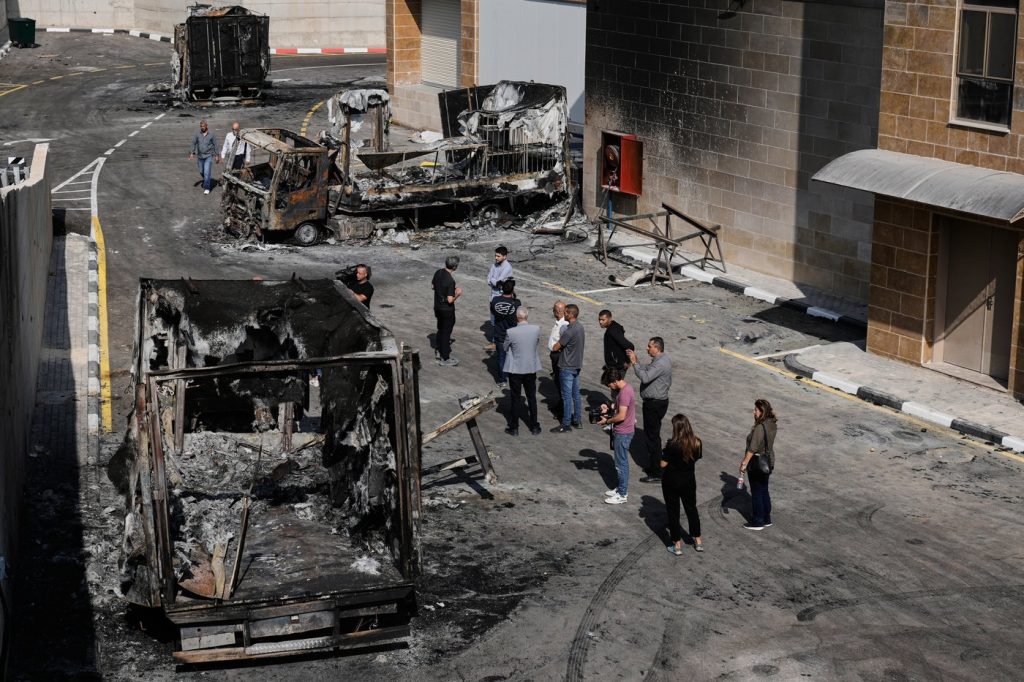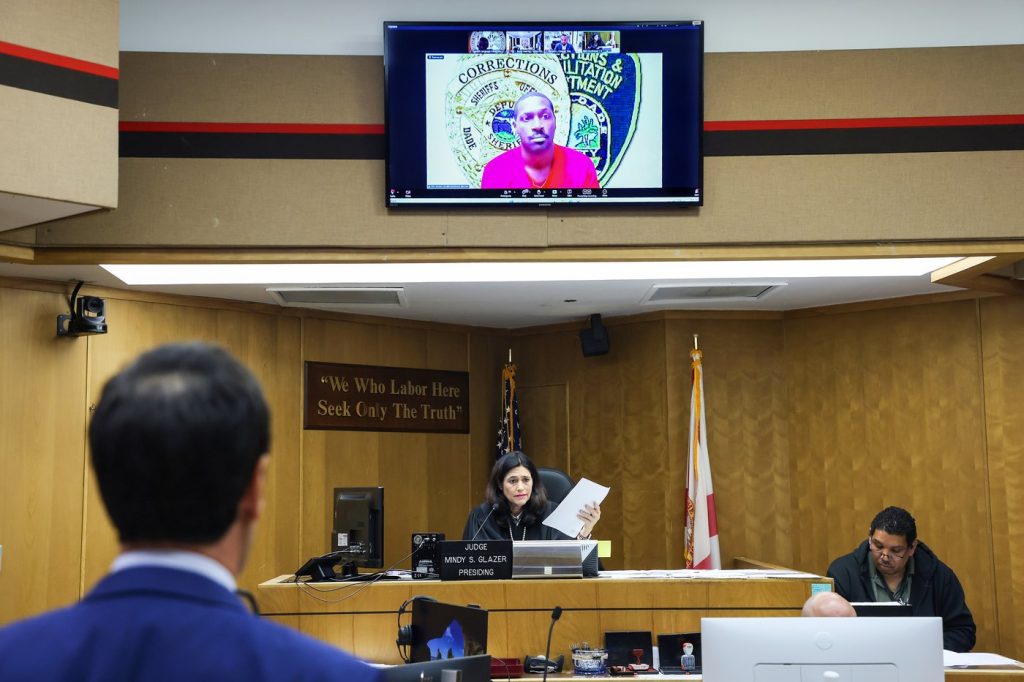JERUSALEM (AP) — On Wednesday, Israeli President Isaac Herzog and high-ranking military officials condemned the violent attacks by Jewish settlers against Palestinians in the West Bank that occurred a day earlier. The officials emphasized the necessity for an immediate end to the escalating violence perpetrated by settlers in the occupied territory.
President Herzog characterized the incidents as “shocking and serious,” marking a significant moment as his criticism adds weight to previous but more muted reactions from other Israeli officials. Despite his largely ceremonial role, Herzog’s comments aimed to offer a moral compass and unify public sentiment against such actions.
Stating that the brutality of a “handful” of offenders has “crossed a red line,” Herzog called upon all state authorities to act decisively to eradicate this growing phenomenon. His remarks followed a violent incident where masked Israeli settlers attacked Palestinian villages, specifically Beit Lid and Deir Sharaf. They vandalized properties, set vehicles on fire, and clashed with Israeli soldiers.
In related news, Israel reopened a crossing into the northern Gaza Strip on the same day after a two-month closure. U.N. officials welcomed this move, criticizing Israel for delays in delivering humanitarian aid since a ceasefire took effect last month. Aid has been funneled into Gaza through two southern and central crossings since October 10.
Additionally, the Israeli military reported the killing of four armed militants in southern Gaza who posed an immediate threat. In Khan Younis, one individual was fatally shot while approaching Israeli troops, and in Rafah, three were killed during military operations targeting underground tunnels.
The Israeli army's chief of staff, Eyal Zamir, echoed Herzog’s sentiments, indicating that the military “will not tolerate” actions from a minority of criminals who tarnish the reputation of law-abiding citizens. He insisted that the military is committed to halting acts of violence perpetrated by settlers, which he deemed contrary to Israeli values. Moreover, Maj. Gen. Avi Bluth, who leads the military’s Central Command, highlighted that addressing the activities of what he called an “anarchist fringe” diverts critical resources needed for security and counterterrorism operations.
Following the attacks, Israeli police made four arrests, while the military reported four Palestinians sustained injuries during the violence. Reports indicate that three of the arrested suspects were later released, while one minor accused of arson remains in custody for further investigation.
Settler violence has drastically increased, with the incidents from Tuesday representing just one in a troubling series of attacks involving young settlers that have surged since the onset of the war in Gaza two years ago. The escalation of attacks has correlated with the olive harvest season, a critical time for Palestinian farmers. The U.N. humanitarian office documented over 260 assaults by Israeli settlers against Palestinians in October alone—the highest monthly total recorded since 2006.
Human rights advocates argue that both the Israeli army and police fail to effectively intervene against settler violence. The Israeli government, heavily influenced by far-right proponents of the settler movement, includes key figures like Finance Minister Bezalel Smotrich, who is responsible for settlement policies, and Cabinet Minister Itamar Ben-Gvir, who oversees law enforcement.
On the ground, the local Palestinian leadership reports significant damage inflicted by settlers, including destruction of dairy trucks and farmland. They characterize these attacks as part of a systematic campaign to displace Palestinians, accusing Israeli authorities of providing protection to settlers while leaving Palestinians vulnerable.
In the aftermath, residents from Beit Lid expressed their frustrations and fears regarding their safety. Mahmoud Edeis shared his concern for his children’s wellbeing and criticized the ongoing cycle of violence that perpetuates fear within their community. Furthermore, eyewitnesses like Amjad Amer Al-Juneidi detailed the organized nature of the attacks, indicating the settlers’ deliberate strategy to cause destruction.
While U.N. officials appreciated the reopening of the Zikim crossing into Gaza, they reiterated their call for increased humanitarian assistance. Stéphane Dujarric, a spokesperson for the U.N., highlighted challenges faced by humanitarian groups in distributing aid within the territory, which is compounded by an ongoing severe shortage of essential supplies, including baby formula and vaccination materials.
Later in the day, U.N. Secretary-General Antonio Guterres reiterated the fragility of the Gaza ceasefire and emphasized the need for its respect to foster negotiations that could lead to a lasting resolution and the establishment of a two-state solution for the Palestinian people.












